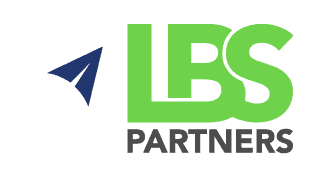THE RISK OF KEY-PERSON RELIANCE IN AIRCRAFT LEASING
In the intricate world of aircraft leasing, the smooth operation of transactions, maintenance, and client relationships often hinges on the expertise and action of a few key individuals. While this reliance on specialised knowledge and experience is common across many industries, the high-stakes nature of aircraft leasing makes the risk associated with key-person dependence particularly acute.
We’ll explore the challenges posed by key-person reliance in the aircraft leasing sector, exploring its impact on business continuity, knowledge sharing, and innovation– and propose a process-driven approach as a strategic solution to mitigate these risks.
INTRODUCTION
Imagine a scenario where a critical aircraft leasing deal is on the verge of closure. The terms have been negotiated, the aircraft inspected, and the contracts drafted. However, as the deadline approaches, the deal unexpectedly stalls.
The reason? The finance expert responsible for finalising the leasing arrangements falls ill, and no one else in the organisation possesses the comprehensive understanding of the financial intricacies involved to take over promptly.
This scenario is not unique to the aircraft leasing industry but is emblematic of the vulnerabilities created by relying heavily on a few individuals, especially in complex sectors where the stakes are high, such as the accountancy and finance departments of aircraft leasing firms.
DISRUPTION RISKS
The most immediate and apparent risk of key-person reliance is the potential for operational disruption. In aircraft leasing, where deals are time-sensitive and involve considerable financial stakes, any delay can have significant implications.
When key personnel become unavailable due to illness, turnover, or even planned absences like vacations, processes can grind to a halt. This not only leads to lost deals and revenue, but also damages relationships with clients and partners who expect timely and reliable service. The disruptions like this are a vulnerability that can severely impact the bottom line and reputation of leasing companies.
KNOWLEDGE BOTTLENECKS
A less visible but equally critical issue is creating knowledge silos. When key individuals hold undocumented expertise, it hinders effective teamwork and knowledge sharing within the organisation. This reliance on a few people limits the options for backup and continuity, making it difficult to respond to unexpected challenges.
Additionally, it prevents the broader development of skills within the team, as employees are often not exposed to or trained in the full spectrum of knowledge and processes their roles may entail.
Over time, this can lead to a lack of depth in the organisation’s talent pool, making it more vulnerable to disruptions.
SCALING AND INNOVATION CHALLENGES
Key-person reliance also poses significant challenges to scaling and innovation. In a rapidly evolving industry like aircraft leasing. The ability to innovate and adapt to market changes is crucial.
However, when processes and decision-making are funnelled to a few individuals, it not only slows down operations but also stifles creativity and innovation. This model makes it difficult to scale operations efficiently as the business grows, often leading to increased costs and reduced competitiveness.
Moreover, the focus on individuals over processes can prevent the organisation from achieving operational excellence, as it relies too heavily on the talent of key personnel rather than on robust, scalable processes.
SOLUTION: PROCESS-DRIVEN APPROACH
To mitigate the risks associated with key-person reliance, aircraft leasing companies should adopt a process-driven approach. This involves:
- Documenting workflows: By creating detailed process maps, companies can ensure that critical knowledge is not confined to the minds of a few individuals. This documentation makes it easier to transfer knowledge, train new employees, and maintain continuity in the face of personnel changes. Furthermore, it allows for a systematic approach to identifying and addressing inefficiencies, ensuring that processes are not only preserved but also optimised for better performance and adaptability over time.
- Cross-training teams: Building expertise across various aspects of the leasing process ensures that the organisation is resilient. It helps create a flexible workforce capable of adapting to changes and covering for absent colleagues, thereby reducing the risk of disruptions. Additionally, this strategy cultivates an environment of collaboration and innovation, as team members with diverse skills and knowledge can contribute new ideas and perspectives, enhancing problem-solving capabilities and driving the company forward.
A process-driven approach addresses the immediate risks associated with key-person reliance, and also lays the foundation for sustainable growth and innovation.
By focusing on processes rather than individuals, aircraft leasing companies can improve efficiency, cultivate continuous improvement, and remain competitive in the dynamic aviation industry.
* * *
In a nutshell, while relying on key personnel is a common challenge across many industries, its implications in the aircraft leasing sector are particularly significant due to the complex and high-stakes nature of the business.
By recognizing the risks associated with this reliance and implementing a strategic shift towards a process-driven model, companies can safeguard their operations against disruptions, enhance their capacity for innovation, and secure a competitive edge in the global market.
